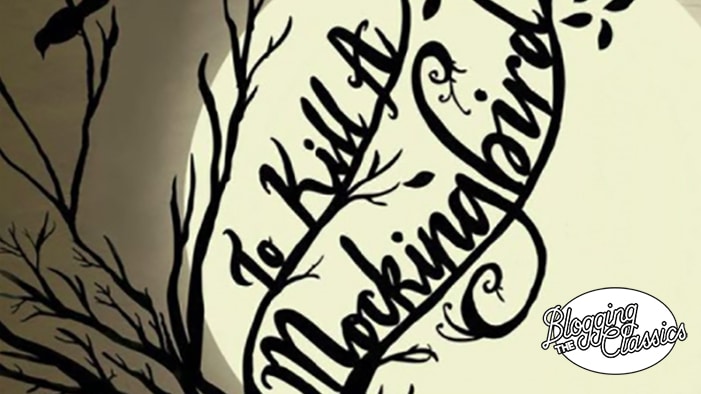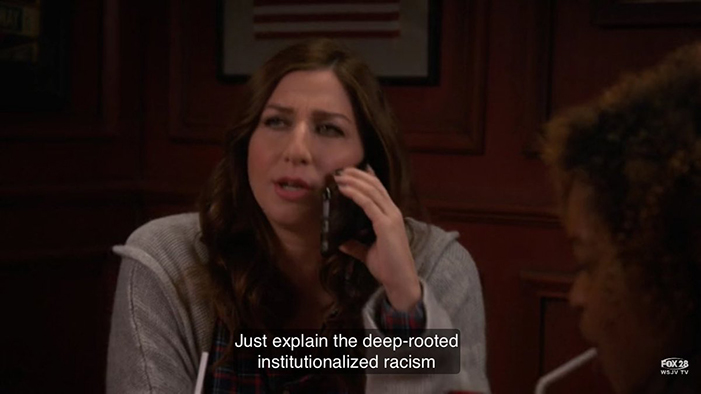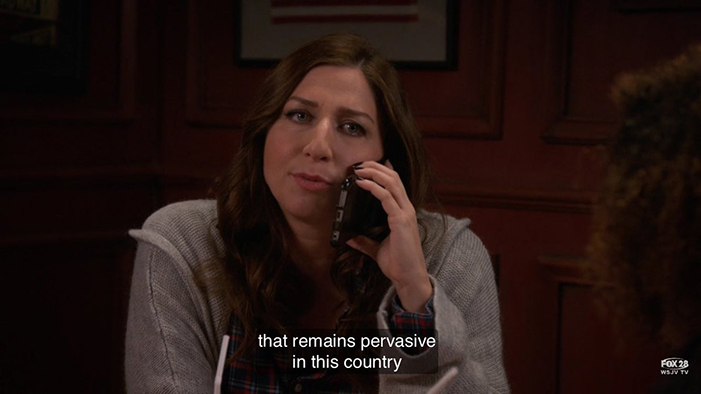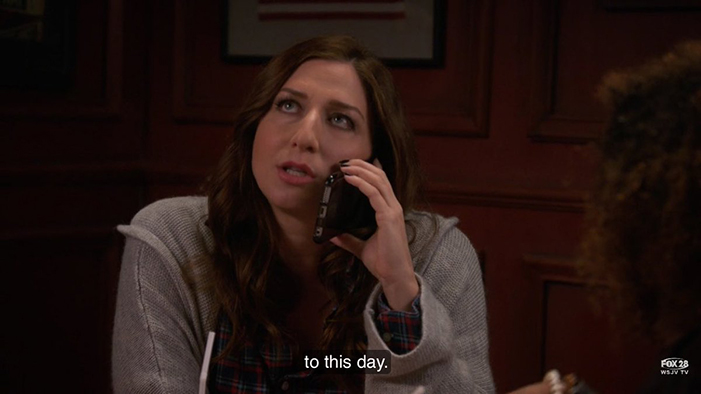Blogging To Kill a Mockingbird: Chapters 14 & 15

To read parts 1—9 of Blogging To Kill a Mockingbird, click here!
I am never going to become a parent. Not only are kids louder than they have any right to be, and not only do they always smell of peanut butter and markers, but I wouldn’t know how to have the Difficult Conversations. I can only imagine the situation would play out as follows:
“Mom, what’s sex?”
“I DON’T KNOW. AND IF I DID, I WOULDN’T TELL YOU. THIS IS THE FIRST CONVERSATION I’VE EVER HAD.”
God forbid they ask me about death. I would either a) tell them that human beings are immortal, or b) exit the conversation by running full-tilt in the opposite direction.
But Atticus has to have all sorts of Difficult Conversations. In Chapter 14, Scout asks him what rape is, as this is what Tom Robinson has been accused of. Atticus defines it as “carnal knowledge of a female by force and without consent.” I guess the answer to the question “How do you talk to kids about difficult things?” is just “Use words they won’t understand.”
This leads to the story of how Calpurnia took them to church one day (Scout had previously asked Cal that question, but she told Scout to ask Atticus), which Aunt Alexandra isn’t happy about because she’s never happy about anything. Furthermore, she prohibits Scout from visiting Calpurnia. Scout, who’s just about HAD IT UP TO HERE with Alexandra and her arbitrary rules, snaps back, which ultimately gets her into trouble with Atticus. She’s sent to her room, where who should she find hiding under her bed but Dill!
Dill is back! I’m glad of it. I like Dill. Every friend group should have a Dill, and if yours doesn’t I’d do something about that posthaste. Get yourself a Dill.
As it turns out, Dill ran away from home because his mom and her new husband spent most of their time ignoring him. Jem breaks the sacred rules of childhood by ratting Dill out to Atticus. Wow. Guy turns twelve and suddenly he’s too good to harbor a runaway in his bedroom. Atticus lets Dill stay, but he tells Aunt Rachel.

Let’s go back to Difficult Conversations for a hot second. Atticus has spent the majority of this novel trying to (sort of) explain racism to Scout—often in completely roundabout ways that leave her confused. It reminds me of the Brooklyn Nine-Nine episode where Jake and Amy are tasked with talking about racism to Terry’s daughters.



Credit: FOX
In the spirit of that, Chapter 15 is the most eye-opening one yet. A few days before the trial, a big group of white dudes arrives at the Finch household. They want Atticus to give up on this whole “defending an innocent man” schtick. Atticus flat-out refuses. Heck Tate, the sheriff, says he’s worried about another group of men, the “Old Sarum” bunch, getting rowdier than usual and going after Tom Robinson, who’s being kept in the Maycomb County jailhouse. What Atticus says in response is, to me, one of the most chilling things anyone’s said thus far:
“This is Saturday. Trial’ll probably be Monday. You can keep him one night, can’t you? I don’t think anybody in Maycomb’ll begrudge me a client, with times this hard.”
That right there is fifty shades of messed up. It’s nothing against Atticus—I’m sure he’s trying to talk sense into them the only way he knows how—but the fact that people are more amenable to the “don’t murder Tom Robinson, my client, because I, a white man, need the cash” argument than the “don’t murder Tom Robinson because HE’S A HUMAN BEING” argument is unfathomably awful.
Anyway, later that night, Atticus heads out with a book and a chair and tells the kids to go to bed. Since Jem, Scout, and Dill have no interest in doing things like “what they’re told,” they sneak out after him. They find him at the jailhouse, guarding Tom Robinson’s cell. While the kids watch, hidden from sight, a mob appears—this one scarier and more threatening than the last. Scout runs out to be with Atticus, trailed by Jem and Dill. As she does so, Scout realizes for the first time that these are not the men from before. These men are strangers. She also realizes that Atticus seems to be afraid. Scout may not know what a lynch mob looks like, but he sure does.
Atticus and Jem square off, with Atticus begging them to go home and Jem refusing to do so. Just when it seems like things are about to come to a head, Scout recognizes one of the men—Mr. Cunningham, Walter’s father. Unaware of the gravity of the situation, she begins engaging him in polite conversation. She chats about everything from his boy, Walter, to his entailment. Quite apart from everything else, I admire Scout’s dedication to small talk. If this had been me, I would have said, “I like your shirt,” and then died of embarrassment the second he didn’t respond.
This simple act on Scout’s part seems to resonate with the men. Suddenly, they feel shame. Mr. Cunningham tells Scout he’ll give Walter her best, and then he and the other men scatter.
Most of the drama has been lost on Scout. All she really feels is tired; it is past her bedtime. Still, the takeaway seems to be that racists like Mr. Cunningham are not actual, literal monsters with forked tongues and horns but rather human beings just like us, which is exactly what makes them so terrifying. The fact that humans have the capacity for such senseless hatred and violence is, and continues to be, horrific. No matter the outcome of the upcoming trial—no matter how much we come to hate Bob Ewell, who is often considered to be the villain of this story—the real villain is and has always been white supremacy.
Harper Lee spends a lot of time making this point for the benefit of white readers. But just remember: it’s a privilege to get to learn about racism instead of experiencing it.
NOTABLE QUOTES
“The Ku Klux’s gone,” said Atticus. “It’ll never come back.”
This conversation takes place in 1935. The Ku Klux Klan will return within fifteen years. It’s the third manifestation of the KKK, and the one that still exists today in 2017.
THIS AND THAT
We’re hot off the heels of a recent controversy in Biloxi, Missouri, where a classroom removed To Kill a Mockingbird from its reading list because it made one student “uncomfortable.” I’ve said it before and I’ll say it again: American history is uncomfortable. As much as I joke about having Difficult Conversations with my hypothetical future kids, these are conversations we need to be having. The problem (racial injustice) still exists, and it won’t go away if we all just close our eyes and pretend it’s not there.
DISCUSSION QUESTIONS
Maybe Scout’s never witnessed a lynch mob firsthand, but she’s still a kid growing up in the South in the 1930s. She’s heard stories. Does it seem realistic to you that Scout doesn’t understand exactly what’s going on in chapter 15?
Looking for the rest of our Blogging the Classics series? Click here, or you can check out the SparkNote!













